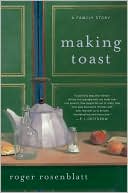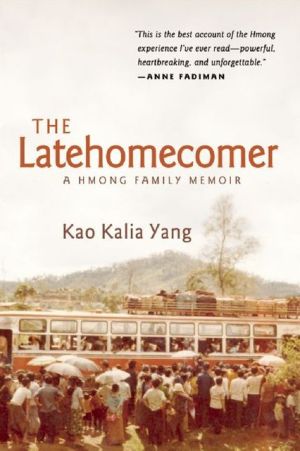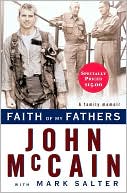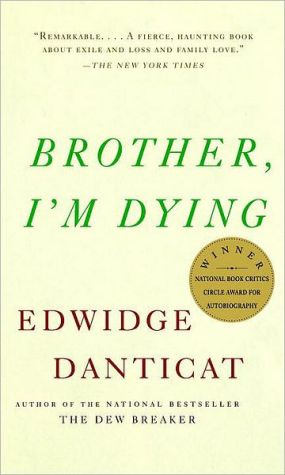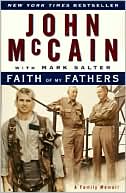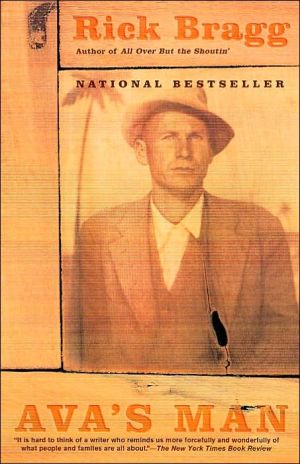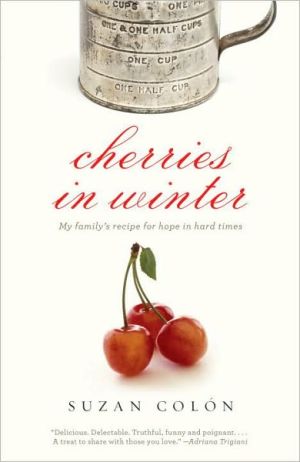Porch Stories: A Grandmother's Guide to Happiness
Award-winning author of fiction and nonfiction Jewell Parker Rhodes is a master of her craft, under-standing how both real and imagined stories can serve as a pathway to enlightenment. Porch Stories is Rhodes's tribute to her beloved grandmother, a real account of the love she received and the lessons she learned.\ Jewell Parker Rhodes was left in the care of her father and his mother when her own mother abandoned the family. Grandmother Ernestine's house in Pittsburgh, Pennsylvania, was home...
Search in google:
Award-winning author of fiction and nonfiction Jewell Parker Rhodes is a master of her craft, under-standing how both real and imagined stories can serve as a pathway to enlightenment. Porch Stories is Rhodes's tribute to her beloved grandmother, a real account of the love she received and the lessons she learned.Jewell Parker Rhodes was left in the care of her father and his mother when her own mother abandoned the family. Grandmother Ernestine's house in Pittsburgh, Pennsylvania, was home to four other grandchildren as well. And while its crumbling bricks, lack of air-conditioning, and neighborhood rodents meant that life was anything but easy, the family house was filled with love. Everyone on their street knew and loved Grandmother Ernestine; men would tip their hats and children would rush up for a hug any time she was outside.No one loved Grandmother Ernestine more than Jewell, who would pass up a movie with her cousins to sit outside on Ernestine's front stoop and listen to her stories and her words of comfort. Jewell would later move out West to live with her mother and father as they reattempted marriage. But that was a short-lived experience. Before long, she was back in the loving arms of her grandmother, whose wisdom and warmth gave all of her children the tools to overcome the ordinary and extraordinary challenges life brings. Porch Stories, described by Rhodes as "an intergenerational love song," is a loving tribute that is at once candid, courageous, and reverent -- a literary portrait of family love that readers from all walks of life can see in themselves. Library Journal In contrast to Matalon and Woolsey's party guide comes this down-home path to appreciating the richness of life. Rhodes (Voodoo Dreams: A Novel of Marie Laveau) serves up some of her grandmother's most inspirational teachings, which she learned in the shadow of Pittsburgh steel mills. Advice ranges from reminders to celebrate being alive to instructions to wear clean underwear. One warning cautions that prejudice is sinful-that all blood flows red. Parker's accounts encourage readers to remember their own family history and to encourage the younger generation to do the same. An easy, inspirational read, although better for gift giving than library use. Recommended where there is interest. Copyright 2006 Reed Business Information.
Porch Stories\ A Grandmother's Guide to Happiness \ \ By Jewell Parker Rhodes \ Atria\ Copyright © 2006 Jewell Parker Rhodes\ All right reserved.\ ISBN: 0743497112 \ \ \ \ "Jewell, child. Wear clean underwear.\ Always. Don't let folks think you're trash.\ No trash in you."\ \ "Grandma!" I giggled. I couldn't have been more than eight.\ Close to midnight, Grandmother and I were sitting on the porch. No, not really a porch. We were too poor for that. We were sitting on a stoop, a series of steps leading up to a front door with a vestibule to provide temporary shelter from the Pittsburgh winters. But the double set of doors locked in too much heat during sweltering summers. Our house lacked air-conditioning. Only fans, with steel mill soot settling as soon as you wiped them clean, stirred the humid air. It was too hot to sleep in the three-storied, crumbling brick house. So the family spent long summer nights sitting on the steps.\ "Going to the porch," we'd say. "Sitting on the porch." "On the porch," we'd coo, feeling expansive, like we lived in an oasis rather than an industrial ghetto.\ When it rained, our porch became a wet, slippery gray. But that didn't dampen our ownership pride. Anchored by the six concrete steps and foot-long landing, we, kids, lived recklessly and joyously.\ On our porch we played jacks. In front of it, we played hopscotch, our squares drawnwith colored chalk. We never fretted about skinned knees, bone-jarring hops.\ When traffic slowed, we'd play Double Dutch in the street. Sometimes Grandmother would join us, and I'd laugh outrageously, thrilled to see her hair bobbing, her skirt and white apron ballooning like a girl's, before she'd go into the house to fry chicken or smother chipped beef with gravy.\ We thought we were a typical family -- though nothing like the Dick and Jane I'd read in my first-grade readers. They were white, we were brown; and nobody we knew said, "See, Spot, run."\ Grandmother and her husband, Reverend, Rev for short, ruled the roost. Rev was stepdad to my father and aunt, both single parents (my dad, divorced; my aunt, widowed because of a barroom brawl). Brother and sister had returned to their mother, children in tow. Two daughters for Pop -- me and my sister, Tonie; a daughter and two sons (all under six) for Aunt Delores -- Aleta, Jerome, and James. All of us folks strained the contours of the house. There was never a place to just be. Never any privacy. You were always running into, stumbling over someone. The bathroom was the only place that guaranteed solitude, but even then, a knock would arrive and a thin voice call, spiking high, "I've got to go. Please."\ Dad worked day shift; my aunt worked nights as a nursing assistant. Rev, on weekdays, poured molten steel and, on weekends, preached gospel for any church in need of a temporary preacher.\ Grandmother, stuffing us with food, surrounding us with love, was the glue holding us all together.\ Our Pittsburgh sky was always overcast with gray steel flakes. Our roads were broken cobblestone with faded metal tracks for clackity-clack streetcars. Fourth of July, we placed cherry bombs in the tracks, hearing them burst while the driver cursed and clanged his bell.\ Inside our house, there was always a warm glow. A sense of forgiveness, understanding that we were children and were expected to raise a ruckus.\ Grandma could holler, "Pick up your shoes"; "Scrape your plate"; "Don't slide down that banister again"; "Watch your mouth!" and make us still feel loved.\ At night, our neighborhood became mythical. A long, thin street with weak streetlamps, bright fireflies, and soulful aromas of collards and fatback, fried onions, and sugar snap peas. A magical place where for an all-too-brief time, Grandmother raised me and taught me about life.\ I didn't realize we were poor. Didn't know that other neighborhoods didn't have rats as big as cats. Wasn't everyone behind in taxes, mortgage payments yet, no matter what, paid the two dollars for burial insurance and fifty cents to hit the numbers?\ "I dreamt number eight -- play that."\ "Six. Nine. Two. Six-nine-two. Rolls off your tongue like butter."\ "My daughter's birthday is eleven July. My birthday's five August. One-one-five. That oughta win at least a dollar."\ Whoever hit the numbers gave a chitlin' party. Grandmother won the most, so she always kept a supply of frozen chitlins, hot sauce, and crackers.\ "Cleanliness is godliness," she'd say, defrosting the chitlins under cold water. I swore I'd never eat those nasty, smelly things. Pig innards. Old-time slave food. The leftovers that Master threw to his overworked slaves. But all the adults loved them, even though Grandmother had to wash them not once but twice, then three times clean.\ Still, I knew what Grandmother meant.\ Cleanliness meant you and your house were in order. Grandmother fought the never-ending struggle with soot, with mounds of laundry (including my father's bloodstained butcher uniforms), with flatware caked in dried grits, and greasy frying pans that needed scouring. The house was never clean. It was more than one woman could handle -- struggling to care for an extended family. Grandmother couldn't work fast enough, hard enough to keep her house and nine bodies clean. But she fought the good fight.\ "Let me see your ears."\ I'd bow my pig-tailed head and fold my ears forward.\ "Good."\ I polished my patent leathers before church too. Took pride that my nails shined. My underwear was clean. And my shoes sparkled and clicked from metal taps on the heels.\ When I was dumped into the bathtub with my sister, Tonie, and cousin Aleta, I never played splash, only scrubbed my knobby elbows, knees, and picked the lint from my belly button.\ Was I Grandmother's favorite child? I like to think so. But it's a lie.\ "Grandma don't play favorites. I love you all." Her children. Her children's children. Her neighbors. Her neighbors' children. Everyone was God's children. And Grandmother loved us all. Each and every one.\ And because of her loving, the whole neighborhood loved her back. Called her "Grandma." Men would tip their hats, boys would sometimes bow, and girls and women would kiss her cheek like she was rare. And she was.\ "Evening. Fine evening, Mrs. Thornton."\ "Yes, praise Lord."\ "It's been another good day."\ "So saith the Lord: 'Be blessed and ye shall receive.' "\ "Grandma Thornton, I love you."\ "I love you too."\ "Can I borrow sugar?"\ "Anytime, baby. Anytime."\ "I think I'm pregnant."\ "Put your feet up. Call on the Lord."\ Grandmother would listen to any troubles, but never gossiped. She was better than the confessional. She'd tell us children to "run and be hush" while she listened to secrets sinners were reluctant to tell God. Grandmother was in the flesh; nonetheless, when the session of confessing was done, Grandmother would remind the sinner, "Jesus loves you."\ Summer nights, after a while, my youngest cousins would swoon, dry up like petals burned by too much sun. Rev would carry them to bed. A boy-child would be tucked under each arm. Afterward, he'd shuffle down the stairs and sit at the dining room table for hours, smoking Camels and drinking cold black coffee. This was a signal for Aleta and Tonie to scoot inside to watch late-night movies. Cagney, always a gangster, shouted, "Stick 'em up"; Bob Hope, goofy and drab, played a ukelele. They liked it best when Fred Astaire danced and spun his Ginger Rogers.\ Grandmother and I would sit on the stoop, on the misnamed porch, studying the stars, the cars that turned onto our street, and neighbors, like us, trying to escape the heat. Sometimes, we'd snap pole beans for tomorrow's dinner, or wave fans with photos of a white Christ crucified. Or a rosy-cheeked Mary looking serenely at her baby.\ If I pressed her, Grandmother would play hand clap games. "Miss Mary Mack, Mack, Mack. She asked her mother, mother, mother...for fifty cents, cents, cents...to see the elephant, elephant, elephant..." My small hands smacked against her calloused hands: "Jump over the fence, fence, fence..."\ When I tired of Miss Mack, I insisted we do a few rounds of "A sailor went to sea, sea, sea to see what he could see, see, see..." I must've driven Grandmother mad. Yet she always said yes to my silly games. "Jewell, child, yes." Hearing Grandmother whisper those three words summed up all my comfort, my joy at being safe within the boundaries of her love. "Jewell. Child. Yes."\ Even when Grandmother was young, I believed she was old. Truth be told, life had taken its toll on her body -- diabetes, high blood pressure. Her upper register was filled with fake porcelain teeth. Years of sacrifice as a single parent (before she married Rev), then more years of making sure her children's children had -- whether it be food, medical care, a roof over their heads -- had taken its toll. Only ageless thing was her love. Her spirit was young like her soul.\ I cherished my outside time with Grandmother, pinching myself both to stay awake and for sheer happiness at being alone with her.\ I always sensed Grandmother was happy, too, enjoying her respite from the day, even though she'd be up again by six.\ "Tell me stories."\ "I've told you before."\ "Tell me again." And she'd hug me to her bosom and never fail to oblige. "Did I tell you the blackbird's tale?"\ "Yes. Tell me again. Tell me like you told me the first time."\ She'd smack her gums. And I swear a hush fell shimmering, straight down from the sky.\ "This is an old, old tale. My mother told me. Her mother told her."\ We were cocooned on the porch: Grandmother, sitting tall on the top step; me, sitting one step below, my chin even with her knees.\ "Blackbirds were the slaves who flew back to Africa. Every time you see a blackbird, you should think of a slave who set himself free."\ "Have blackbirds always been ex-slaves?"\ "No. Didn't begin until two centuries ago. Eighteen hundreds, down in Alabama. Hundreds of slaves were picking cotton, suffering under Master's care, all of them singing about the need to go. Singing about 'Crossing the River Jordan.' Or 'Go Down Moses, let my people go.' All these Christian songs they'd been taught. They sang, too, about trains and 'How long they'd been gone? Baby, how long?' But only so many could take the Underground Railroad. Only so many could escape. Most just sang, mournful, wailing, filled with never-ending yearning.\ "The oldest slave was a spell man. He knew about herbs, how to mix possets and teas. One day, when the sorrowful songs seemed to rock the sky, the old man put down his hoe, shouting, 'Children, remember. Remember who you be.'\ "The slaves were bewildered. They'd forgotten who they were. Couldn't remember any name before they were called Sally. Mary. Tom or Joe.\ "The old man, his back bowed, crisscrossed with scars, looked at the dulled faces, the thin men and women, hands calloused from cotton, the children, heavy-lidded and tired, and said, 'Time to go. Time to go.' He whispered his African name in the nearest slave's ear. Whispered his name deep down into the other slave's soul. Then, he raised his arms toward the sun and flew. Just lifted off the ground. His arms became wings. His back grew feather-down. His legs elongated into feet with talons. 'High,' he said. 'High beyond the horizon. I'm free.'\ "Other slaves began whispering their African names. Olun, Nambi, Membe, raising their arms and believing in their power to fly. Straight at the sun. Through puffs of clouds. No worries about wings burning off. Just soaring, straight and high. Far into the sky.\ "The overseer was bewildered, riding his horse, cracking his whip like a madman. Threatening any slave who tried to rise. He knew Master would fire him for even one slave lost. He grabbed John's foot, only to have talons draw blood. 'Kailila,' John cried, long and hard, the vowels turning into a high-pitched screech. The overseer shook his fist at John/Kailila. Shook his fist at the swarm of blackbirds diving through clouds, creating swirls of black on bright blue sky.\ "When there was a flock, over two dozen slaves turned into sleek blackbirds, they turned as one and headed east -- back across the ocean, the wide, wide expanse of restless waters, to the African shore."\ "All the slaves flew?"\ "No, some slaves were left behind. They wished the blackbirds well. Clapped their hands. Shouted out a farewell song."\ "Didn't they cry?"\ "Sure they did. Sometimes too much pain can make you forget pieces of yourself. Forget your homeland, the people you loved. Slavery's outrageous curse. But the remaining slaves were left to tell the tale. Like my grandparents. They saw the blackbirds fly. They told the tale, passing it on and on and down to me. Me, passing it to you."\ "Did the blackbirds become human again?"\ "You mean when their feet touched the soil?"\ "Yes," I sighed, wishing my arms would become wings and I could fly into the night sky, soaring above tenement houses, Pittsburgh's three rivers and rolling hills.\ "Yes, but some of the slaves, having crossed the sea, preferred to fly. They no longer wanted to be on land where they could be captured and resold. They preferred life as winged creatures, feeling the sun bake their black wings.\ "Sunshine never scorches them. They never fall. Never drown in the sea. Just call -- sometimes with pain, sometimes with alarm -- sometimes with plain melancholy. Some say they call for their lost families, for mothers and fathers they couldn't return to, for brothers and sisters enslaved. Sometimes they call -- caw -- hurting, because they feel the depth of human pain. They remember their buried pain, piercing way down deep, just as they remember their original names. Some say they call for all the slaves that died at sea. Those that never survived the crossing.\ "Most times, slaves were tossed overboard if they were too weak, too sick to fetch a good price. Sometimes, whole cargos -- men, women, and children -- were drowned when a British ship chased the slavers. No cargo, no crime. Their caw-cawing keep the drowned souls from feeling lonely.\ "What blackbirds like best is sitting in a treetop, atop a wire, or on a scarecrow's hat, watching the neat rows of growing corn. Sun, Earth, and Water keep on providing. Blackbirds keep true to their freedom. Before sleeping, before tucking their heads beneath their wings, they give a special call -- caw-caw. Caw-caw. Call-call."\ "Call, what? What do they say? What's the cawing mean?"\ "That's the secret. Call. Caw-caw. Some say the birds keep repeating their African names. They say they do it before sleep, to make certain they won't forget. In case they ever decide to be human again.\ "Some say the blackbirds caw/call, carrying tales. They call for you and me to travel homeward, to hold on to our selves despite hardship, despite pain. They caw-caw for us to pass down tales, down through the generation. They caw-caw for us to call upon our human selves to remember old truths...to remember a time when our ancestors left bitterness and pain, and rose up and flew as glorious blackbirds."\ Each night Grandmother would tell a different tale...then, on Sunday, begin all over again. Sometimes she'd tell the same tales, sometimes she'd tell old tales redone. Sometimes there'd be an unexpected story. New and fresh beyond measure.\ Porch stories didn't happen September through May. School nights were bland, filled with getting ready for tomorrows that echoed the same old day. Only during oppressive summer nights, when heat and humidity made the air too thick to breathe, did the soul-stirring stories arise. Each year, they'd change a bit, as if the stories changed according to my age. Different details would be filled in from six to eight or eight to ten. In truth, Grandmother's stories were for all ages. But the tales themselves were like labyrinths, mazes, where the meaning wasn't always clear.\ Everything came with a maxim:\ \ "Jewell, child, what goes around, comes around."\ "Reap what you sow."\ "Do unto others as you would have them do unto you."\ "Do good and it'll fly right back to you."\ "Catch your spirit up in a world of joy."\ "The dead are with us. You're never alone. All things alive."\ "Nobody in the world better than you. You no better than anyone else. We all a 'mixed-blood stew.' "\ "Cry, then get on with it."\ "Signs everywhere. Pay attention."\ "Scratch a wall, somebody dies."\ "Burn your hair, for if a bird finds it, uses it for its nest, your hair will fall right out."\ "Small actions mean something."\ "Every good-bye ain't gone."\ "What's worth holding on to in this world sometimes can't be caught. Can't be held."\ "Babies mean life."\ \ I didn't understand half of what Grandmother said. Just marveled at her throaty laugh, her smacking gums. Her kind eyes. Tough hands.\ I felt like the black sky was going to swallow me up -- warm, comforting in its infinity and blackness. The complicated labyrinth of stories would never end. A communion existed between us; I knew how to be quiet, in love with Grandmother's words and stories. Our small stoop became a universe.\ She taught me how to live.\ \ Remember your name. Who-you-be.\ Be in love with your good self.\ Wear clean underwear. Don't let anyone\ ever think there's trash in you.\ \ Copyright © 2006 by Jewell Parker Rhodes\ \ Continues... \ \ \ \ Excerpted from Porch Stories by Jewell Parker Rhodes Copyright © 2006 by Jewell Parker Rhodes. Excerpted by permission.\ All rights reserved. No part of this excerpt may be reproduced or reprinted without permission in writing from the publisher.\ Excerpts are provided by Dial-A-Book Inc. solely for the personal use of visitors to this web site. \ \
\ From the Publisher"A vivid and affectionate portrait...Grandmother Ernestine is the keeper of wisdom, stories, hopes, and dreams. Thank you, Jewell Parker Rhodes, for sharing her with us." \ — Amy Hill Hearth, coauthor with the Delany Sisters of Having Our Say\ "A loving ode to the power and strength of one woman's voice."\ — Gail Tsukiyama, award-winning author of Dreaming Water\ "Mystical and down-to-earth...a more coherent and poetic grandmother narrative than most anybody ever had."\ — Lorene Cary, author of Black Ice\ \ \ \ \ \ Library JournalIn contrast to Matalon and Woolsey's party guide comes this down-home path to appreciating the richness of life. Rhodes (Voodoo Dreams: A Novel of Marie Laveau) serves up some of her grandmother's most inspirational teachings, which she learned in the shadow of Pittsburgh steel mills. Advice ranges from reminders to celebrate being alive to instructions to wear clean underwear. One warning cautions that prejudice is sinful-that all blood flows red. Parker's accounts encourage readers to remember their own family history and to encourage the younger generation to do the same. An easy, inspirational read, although better for gift giving than library use. Recommended where there is interest. Copyright 2006 Reed Business Information.\ \


